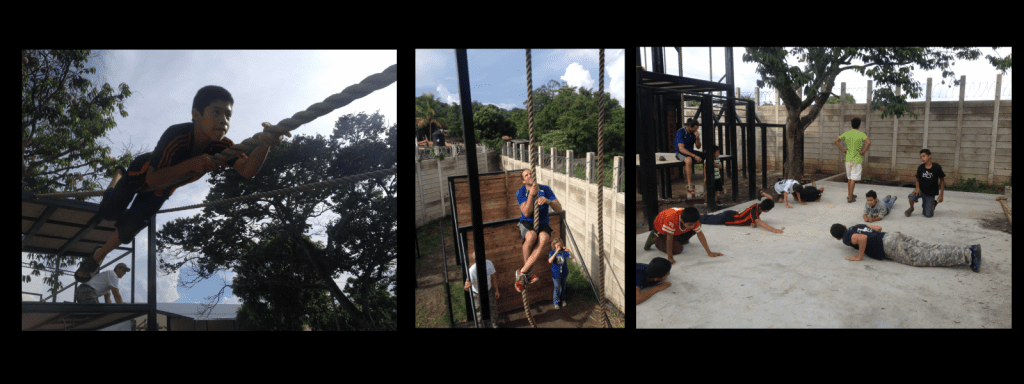Introduction
Developing a positive self-image is essential for leading a fulfilling and successful life. A healthy self-image not only enhances mental well-being but also boosts confidence and resilience in the face of challenges. This article provides practical tips and strategies for building a positive self-image, focusing on various aspects such as media literacy, challenging societal norms, cognitive-behavioral techniques, family support, and community involvement.
Media Literacy: Navigating the Digital World
In today’s digital age, media consumption plays a significant role in shaping self-image. Here’s how you can develop media literacy to navigate this landscape positively:
- Understand the Unrealistic Standards:
- Recognize that social media and advertisements often portray unrealistic and edited versions of reality. These images are curated to show the best moments and are not representative of everyday life.
- Follow body positivity and mental health advocates who promote realistic and diverse representations of beauty and success.
- Limit Screen Time:
- Set boundaries for social media use to avoid excessive exposure to potentially harmful content. Designate specific times of the day for social media and stick to them.
- Use apps that track and limit your screen time, helping you stay mindful of your media consumption habits.
- Curate Your Feed:
- Follow accounts that inspire and uplift you, and unfollow or mute those that trigger negative feelings or self-comparison.
- Engage with content that promotes self-care, mental well-being, and personal growth.
- Critical Thinking:
- Question the authenticity and intent behind the content you consume. Ask yourself whether the content is realistic, helpful, and aligns with your values.
- Discuss media content with friends or family, fostering a healthy dialogue about its impact on self-image.

Challenging Societal Norms: Embracing Individuality
Societal norms often dictate unrealistic standards of beauty, success, and behavior. Here’s how to challenge these norms and embrace your individuality:
- Identify and Question Norms:
- Reflect on societal norms that affect your self-image. Ask yourself whether these standards are realistic and beneficial.
- Challenge stereotypes related to gender, body image, and success. Remember that everyone’s journey is unique.
- Celebrate Diversity:
- Surround yourself with diverse perspectives and representations. Engage with media, literature, and communities that celebrate different body types, cultures, and lifestyles.
- Advocate for inclusivity and diversity in your community, workplace, and social circles.
- Set Personal Standards:
- Define success and beauty on your terms. Set personal goals and standards that reflect your values and aspirations, rather than those imposed by society.
- Celebrate your achievements and progress, no matter how small they may seem.
Cognitive-Behavioral Strategies: Transforming Thought Patterns
Cognitive-behavioral strategies can help you transform negative thought patterns and build a positive self-image. Here are some effective techniques:
- Practice Positive Self-Talk:
- Replace negative self-talk with positive affirmations. For example, instead of saying, “I can’t do this,” say, “I am capable and can handle this challenge.”
- Write down positive affirmations and place them where you can see them daily, such as on your mirror or desk.
- Challenge Negative Thoughts:
- Identify negative thoughts that impact your self-image. Ask yourself whether these thoughts are based on facts or assumptions.
- Use evidence to counter negative thoughts. For example, if you think, “I always fail,” remind yourself of past successes and accomplishments.
- Set Realistic Goals:
- Break down larger goals into smaller, manageable steps. Celebrate each achievement along the way.
- Set goals that align with your values and interests, rather than those influenced by external pressures.
- Practice Mindfulness:
- Engage in mindfulness practices such as meditation, deep breathing, or yoga. These activities can help you stay present and reduce stress.
- Mindfulness helps you become aware of negative thought patterns and allows you to address them constructively.
Family Support: Creating a Nurturing Environment
A supportive family environment is crucial for building a positive self-image. Here’s how families can contribute:
- Open Communication:
- Foster open and honest communication within the family. Encourage discussions about feelings, challenges, and achievements.
- Listen actively and validate each family member’s experiences and emotions.
- Positive Reinforcement:
- Provide positive reinforcement and praise for efforts and achievements, regardless of the outcome.
- Focus on strengths and qualities rather than shortcomings.
- Set Healthy Boundaries:
- Establish and respect healthy boundaries within the family. Encourage independence and self-expression.
- Avoid comparing family members to each other. Recognize and appreciate each person’s unique qualities and contributions.
- Model Positive Behavior:
- Lead by example. Demonstrate self-care, positive self-talk, and resilience in the face of challenges.
- Share your experiences and coping strategies with family members, fostering a supportive environment.
Community Involvement: Building a Supportive Network
Being part of a supportive community can significantly enhance self-image. Here’s how to get involved:
- Join Support Groups:
- Participate in support groups or communities that focus on self-improvement, mental health, and well-being.
- Sharing experiences and challenges with like-minded individuals can provide validation and encouragement.
- Volunteer and Give Back:
- Volunteering can provide a sense of purpose and accomplishment. Helping others can boost self-esteem and foster a positive self-image.
- Engage in community projects, mentorship programs, or local charities.
- Seek Mentorship:
- Find mentors who can provide guidance, support, and inspiration. A mentor can offer valuable insights and help you navigate challenges.
- Similarly, consider mentoring others. Sharing your knowledge and experiences can reinforce your positive self-image.
- Participate in Community Events:
- Attend community events, workshops, and seminars that promote mental health and self-care.
- Networking with others who share similar interests and goals can create a sense of belonging and support.
Self-Care Practices: Prioritizing Physical and Mental Well-being
Self-care is a vital component of developing a positive self-image. Here are some self-care practices to incorporate into your routine:
- Physical Activity:
- Engage in regular physical activity that you enjoy, such as walking, dancing, or playing sports. Exercise releases endorphins, which can improve mood and self-esteem.
- Set realistic fitness goals and celebrate your progress.
- Healthy Eating:
- Maintain a balanced diet that nourishes your body and mind. Avoid restrictive diets that can lead to negative body image.
- Practice mindful eating by paying attention to your body’s hunger and fullness cues.
- Mental Health Care:
- Prioritize your mental health by seeking professional help if needed. Therapy and counseling can provide valuable support and strategies for building a positive self-image.
- Practice relaxation techniques such as meditation, deep breathing, and mindfulness to reduce stress and enhance emotional well-being.
- Hobbies and Interests:
- Engage in hobbies and activities that bring you joy and fulfillment. Pursuing your interests can boost self-esteem and provide a sense of accomplishment.
- Make time for creativity, whether it’s through art, music, writing, or other forms of self-expression.
- Social Connections:
- Cultivate meaningful relationships with friends and family. Social connections provide support, validation, and a sense of belonging.
- Spend quality time with loved ones and communicate openly about your feelings and experiences.
Conclusion
Building a positive self-image is a multifaceted process that involves media literacy, challenging societal norms, cognitive-behavioral strategies, family support, community involvement, and self-care practices. By implementing these practical tips and strategies, you can enhance your self-image and overall well-being.
Remember, developing a positive self-image is an ongoing journey that requires patience and self-compassion. Embrace your unique qualities, celebrate your achievements, and surround yourself with supportive individuals who uplift and inspire you. Through consistent effort and a proactive approach, you can build a strong and positive self-image that empowers you to lead a fulfilling and successful life.




